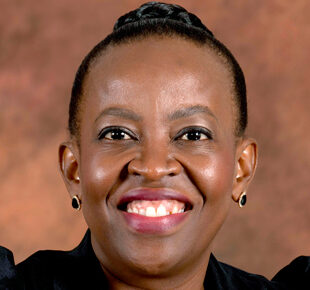Minister in the Presidency for Planning, Monitoring and Evaluation, Maropene Ramokgopa, has called for universal social protection to be recognised as a vital investment in human dignity and economic resilience, not charity.
Ramokgopa was speaking at the opening of the G20 Development Planning Ministers’ Meeting at Kruger National Park, Mpumalanga, on Friday.
She emphasised that only 13% of people in Sub-Saharan Africa are covered by at least one form of social protection, compared to 86% in North America and Europe.
Ramokgopa said investment in social protection is dangerously low, especially in low-income countries.
Over 75% of low-income countries, she said, spend more on servicing debt than on healthcare, and over 50% [of these countries] spend more on debt than education.
Social protection is vital
She said it is important to include social protection in national plans for economic growth and empowerment.
Ramokgopa said this should also be part of policies for decent jobs, farming, rural development, industry, and programmes that help improve the job market, promote gender equality, and support women, young people, and people with disabilities.
“It is due to these considerations that, despite its fiscal constraints, South Africa has chosen to invest in human capital and human dignity. Nearly 60% of South Africa’s non-interest public expenditure is allocated to the social wage,” said Ramokgopa.
This includes free education, healthcare, housing, electricity, and sanitation, as well as income support for children, the elderly, and persons with disabilities. Public employment programmes also target youth and women.
Research shows grants serve a purpose
She said research shows that this investment is yielding results as girls stay longer in schools and recipients of child support grants perform better academically.
Speaking on development financing, Ramokgopa said official development flows and domestic capacities are far from sufficient.
“Blended finance has mobilised only $213-billion to date, with the least developed countries receiving a paltry 6%. This underscores the imperative to strengthen domestic resource mobilisation and to curb illicit financial flows (IFFs) decisively.
“IFFs remain a critical challenge for many countries, especially in developing and low-income countries. Although inherently difficult to quantify, estimates suggest that IFFs amount to around $1.5-trillion annually,” said Ramokgopa.
She also highlighted the importance of curbing IFFs, saying African continents lose at least $88.6-billion annually.
Ramokgopa said these resources could build infrastructure such as schools and hospitals and fund climate resilience.
She called for stronger global cooperation, transparency, and accountability mechanisms to stop these losses.
Ramokgopa also called for a new framework of high-level principles for tackling IFFs to be introduced at the meeting, covering financial transparency, equitable tax systems, procurement integrity, and technological innovation to track and recover stolen assets.
“South Africa strongly supports the continued engagement of the Financial Action Task Force in identifying gaps and enhancing global cooperation and urges the G20 to adopt an even more development-centred approach,” she said.



